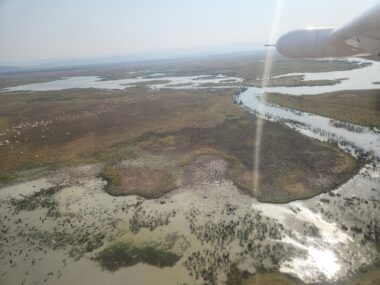Engineers Australia has welcomed the release of the Australian Government's Circular Economy Ministerial Advisory Group (CEMAG) Interim Report and the Environmentally Sustainable Procurement Policy (ESPP) as a significant step towards sustainability.
“These initiatives aim to create tangible benefits for everyday Australians. By transitioning to a circular economy and environmentally sustainable procurement, we are safeguarding our planet for future generations while driving economic prosperity for everyone,” said Engineers Australia CEO Romilly Madew AO.
The Environmentally Sustainable Procurement Policy, which takes effect on July 1, aims to ensure that government officials purchase goods and services that are environmentally friendly, reducing greenhouse gas emissions and promoting sustainability.
Environmentally sustainable procurement policy will guide the Australian Government in purchasing products that minimise greenhouse gas emissions, are safe for the environment and last longer. Ms Madew said the scale of these procurements presents a unique opportunity to make a substantial impact on Australia’s sustainability and net zero ambitions.
“Sustainable procurement isn't just about buying products; it's about shaping markets, driving innovation and creating jobs. Prioritising sustainable products and services will help drive demand for new technologies, materials and processes that are environmentally friendly, socially responsible, and economically viable,” she said.
CEMAG's Interim Report, also released today, offers crucial direction for Australia's shift towards a circular economy, with a strong emphasis on enhancing materials efficiency, reducing energy demand, minimising waste, and achieving net-zero emissions.
The report outlines twenty recommendations, including priority suggestions such as establishing circular economy provisions in sector plans, setting circularity requirements to fill regulatory gaps, leveraging government procurement power to create circular markets, and promoting voluntary sustainability reporting aligned with international standards.
“Engineers Australia is proud to contribute our expertise to CEMAG and supports the call for urgent regulatory reform and coordinated action outlined in the Interim Reports preliminary recommendations. We advocate for regulatory frameworks that foster circularity, addressing priority issues like strategic policy setting and economic leverage for circular markets,” Ms Madew said.
“Engineers will play an increasingly critical role in transitioning to a circular economy by implementing principles that promote materials efficiency, reduced energy demand, waste minimisation, and achieving net zero emissions. We commend the government's commitment to environmentally responsible practices and look forward to seeing the positive outcomes of this work."
About Engineers Australia
As Australia’s national body for engineering, we’re the voice and champion of our 120,000-plus members. Providing them with the resources, connections and growth they need to do ethical, competent and high-value work in our communities.
Media inquiries: Lisa McKoy | [email protected] | 0468 366 691



